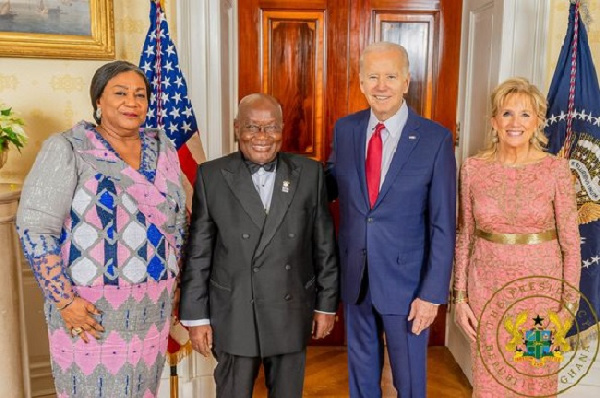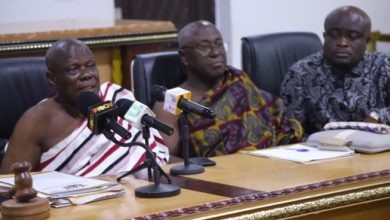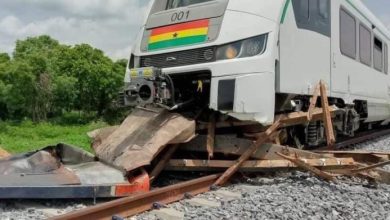Ghana named beneficiary state of $1 million US “Victims of Trafficking Program”

The United States of America through its Department of State, has chosen Ghana as one of two counties to benefit from a new program initiative to be known as “enhanced reintegration support for victims of trafficking program”.
According to the State Department, the program aims at providing economic security for survivors of trafficking and will have an initial investment portfolio of $1 million dollars.
The initiative forms part of several arrangements, deals and agreements being reached between the United States and African countries at the 2022 “US – Africa Leaders’ Summit” ongoing at the Walter Washington Convention Center in Washington DC, USA.
“The Department of State will launch the Fostering Economic Security Through Enhanced Reintegration Support for Victims of Trafficking program with an initial investment of $1 million” the official facts sheet released on Wednesday 14 December 2022, from the State Department communicating the development read.
“This project will enhance and extend reintegration options for trafficking survivors who choose to pursue entrepreneurship by developing tools and capacity building, increasing and extending support, and enhancing monitoring. Countries that may benefit from global programming are Ghana and Nigeria” the fact sheet further indicated.
2021 US trafficking report
According to the 2021 Trafficking in Persons Report o the US State Department on Ghana, over the past five years, human traffickers exploit domestic and foreign victims in Ghana, and traffickers exploit victims from Ghana abroad.
Traffickers exploit Ghanaian children in forced labor within the country in inland and coastal fishing, domestic service, street hawking, begging, portering, artisanal gold mining, quarrying, herding, and agriculture, especially cocoa.
Donor-funded research focused on the fishing industry on Lake Volta indicated that more than half of the children working on and around the lake were born in other communities, and many of these children are victims of forced labor, not allowed to attend school, given inadequate housing and clothing, and controlled by fishermen through intimidation, violence, and limited access to food.
Traffickers force boys as young as five years old to work in hazardous conditions, including deep diving, and many suffer waterborne infections. Girls perform work on shore, such as cooking, cleaning fish, and preparing fish for market, and are vulnerable to sexual abuse and forced marriage for the purpose of exploitation.
A study of the prevalence of child trafficking in selected communities in the Volta and Central Regions indicated traffickers had subjected children from nearly one-third of the 1,621 households surveyed to forced labor, primarily in inland fishing and domestic work.
Organized traffickers who target vulnerable parents and communities facilitate child trafficking in the fishing industry in Ghana and other West African countries. Relatives often send girls via intermediaries to work in harsh conditions in forced labor in domestic work.
Children in northern regions of Ghana whose parents use intermediaries or relatives to send them to work in agriculture in the south during school breaks or the dry season are at increased risk for forced labor.
Ghanaian children who do not have access to school or who can attend only intermittently due to limited space and the double-track school schedule are also at risk for sex and labor trafficking. Ghanaian girls and young women from northern regions move to urban centers throughout Ghana to seek work as porters, and traffickers sometimes exploit them in sex trafficking and forced labor.
Traffickers’ subject Ghanaian girls, and to a lesser extent boys, to sex trafficking in urban areas and mining regions across Ghana. Traffickers’ subject children from West African countries to forced labor in Ghana in fishing and domestic servitude.
Ghanaian and Nigerian women and girls in sex trafficking in Ghana, including in mining regions, border towns, and commercial centers. Traffickers lure Nigerian women and girls to Ghana with the promise of good jobs and coerce them into commercial sex to pay exorbitant debts for transportation and lodging.
Traffickers exploit Ghanaian women and children in forced labor and sex trafficking in the Middle East, Europe, and other parts of West Africa. Fraudulent recruiters lure Ghanaian men to the Middle East under false pretenses, where traffickers subject them to forced labor and sex trafficking.
Unscrupulous agents recruit Ghanaians seeking employment, transport them through North Africa, and exploit them in sex and labor trafficking in Europe and the Middle East. NGOs report traffickers use internet platforms to recruit Ghanaians seeking work overseas.
US law on trafficking victim
Under the Trafficking Victims Protection Act of 2000 (TVPA), the U.S. Department of Health and Human Services (HHS) is the sole Federal agency authorized to certify foreign adult victims of human trafficking so that they are eligible for federal and State benefits and services to the same extent as refugees admitted to the United States.
Similarly, it is the sole Federal agency authorized to determine the eligibility of foreign minor victims of trafficking for the benefits and services available to refugees.
Certification and Eligibility Letters are issued by the HHS Office of Refugee Resettlement (ORR). Certified and eligible victims of human trafficking can receive benefits and services necessary for their safety, protection, and basic wellbeing.
These include; housing assistance, food assistance, income assistance, employment assistance, English language training, health care, mental health services and foster care.





